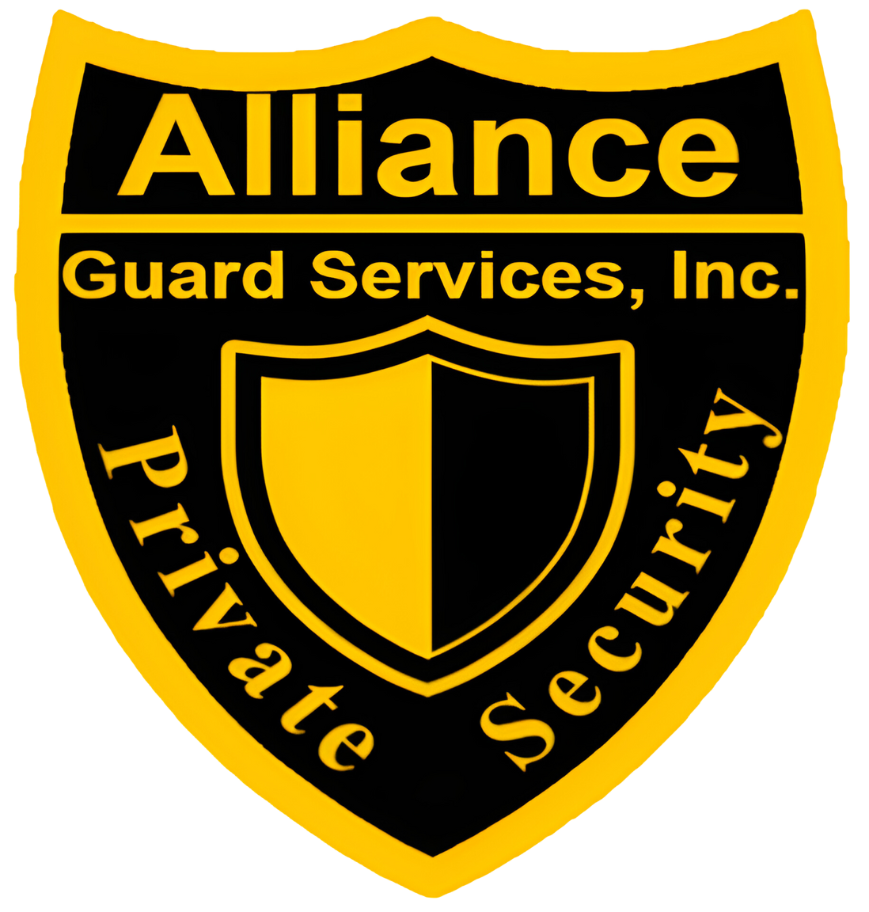The Role of Hospital Security Guards
Setting the Context: Importance of Safety in Healthcare Facilities
This section will provide background information on the critical importance of safety within healthcare facilities. It will discuss the unique challenges and risks associated with providing healthcare services and the need for comprehensive security measures to ensure the safety and well-being of patients, staff, and visitors.
Overview of the Article’s Focus
Here, we’ll provide a brief overview of the main topics that the article will cover. It will highlight the focus on hospital security and the role of security guards in safeguarding healthcare facilities. This overview will help readers understand the scope and purpose of the article.
Introduction to the Role of Security Guards in Hospitals
This part will introduce the primary focus of the article, which is the role of security guards in hospitals. It will outline the responsibilities and duties of security guards within healthcare settings, including maintaining a safe environment, responding to emergencies, and ensuring the security of patients, staff, and visitors.
Why Hospitals Need Security Guards
Protecting Patients, Staff, and Visitors
This section will discuss how security guards play a crucial role in ensuring the safety of patients, staff, and visitors within hospital premises. It will highlight the importance of maintaining a secure environment to prevent incidents such as assaults, thefts, and unauthorized access to sensitive areas.
Safeguarding Valuable Assets and Medical Equipment
Here, we’ll explore the role of security guards in safeguarding valuable assets and medical equipment within hospitals. This includes protecting expensive medical devices, pharmaceuticals, and supplies from theft, vandalism, or tampering, which could jeopardize patient care and compromise hospital operations.
Managing Volatile Situations and Potential Threats
This part will address how security guards are trained to handle volatile situations and potential threats within hospital settings. It will discuss their role in de-escalating conflicts, managing aggressive behavior from patients or visitors, and responding to emergencies such as violent incidents or disruptions.
Addressing Security Breaches and Preventing Unauthorized Access
In this section, we’ll discuss the importance of security guards in addressing security breaches and preventing unauthorized access to hospital facilities. This includes monitoring access points, verifying credentials, and enforcing security protocols to ensure that only authorized individuals enter restricted areas, thereby reducing the risk of theft, vandalism, or other security incidents.
Responsibilities of Hospital Security Guards
Maintaining a Safe and Secure Environment
This section will outline the primary responsibility of hospital security guards in maintaining a safe and secure environment within the healthcare facility. It will discuss their role in deterring criminal activity, enforcing safety policies and procedures, and ensuring the overall well-being of patients, staff, and visitors.
Conducting Patrols and Surveillance
Here, we’ll discuss how hospital security guards are tasked with conducting regular patrols and surveillance of the premises. This includes monitoring various areas of the hospital, such as entrances, parking lots, corridors, and emergency departments, to identify and respond to potential security threats or suspicious activities.
Responding to Emergencies and Incidents
This part will highlight the crucial role of hospital security guards in responding to emergencies and incidents that may occur within the healthcare facility. It will discuss their training in emergency response protocols, such as evacuations, lockdowns, and medical emergencies, and their coordination with other emergency responders to ensure a swift and effective response.
Assisting with Patient Interactions and Conflict Resolution
In this section, we’ll explore how hospital security guards often assist with patient interactions and conflict resolution. This includes intervening in disputes between patients or visitors, providing assistance to individuals in distress, and ensuring that hospital policies and procedures are followed while maintaining professionalism and empathy.
Collaboration with Hospital Staff and Law Enforcement
Importance of Collaboration between Security Guards and Hospital Staff
This section will emphasize the significance of collaboration between security guards and hospital staff in ensuring the safety and security of the healthcare facility. It will discuss how effective communication, teamwork, and cooperation between security personnel and healthcare professionals contribute to a comprehensive approach to security management.
Coordination with Local Law Enforcement Agencies
Here, we’ll explore the importance of coordination between hospital security and local law enforcement agencies. This includes sharing information, resources, and expertise to address security concerns, respond to emergencies, and investigate incidents effectively. We’ll discuss the role of security guards in facilitating communication and cooperation between the hospital and law enforcement authorities.
Building Partnerships with Community Organizations for Enhanced Safety
In this part, we’ll discuss the value of building partnerships with community organizations to enhance safety and security in and around the hospital. This may include collaborating with neighborhood associations, business groups, and social service agencies to address local safety concerns, implement crime prevention initiatives, and promote community engagement. We’ll explore how security guards can play a proactive role in fostering positive relationships with community stakeholders to create a safer environment for patients, staff, and visitors.
Technology and Innovations in Hospital Security
Overview of Technology Used in Hospital Security
This section will provide an overview of the various technologies commonly used in hospital security systems. It will cover surveillance cameras, access control systems, alarm systems, biometric identification systems, panic buttons, and remote monitoring tools. The discussion will highlight how these technologies contribute to enhancing the safety and security of healthcare facilities.
Examples of Innovative Security Solutions in Healthcare Facilities
Here, we’ll showcase examples of innovative security solutions implemented in healthcare facilities to address specific security challenges. This may include the use of facial recognition technology for access control, real-time location systems (RTLS) for asset tracking, wearable panic buttons for staff, and mobile applications for incident reporting and communication. These examples will illustrate the diverse range of technologies being utilized to improve hospital security.
Benefits and Challenges of Implementing Technology in Hospital Security
In this part, we’ll examine the benefits and challenges associated with the implementation of technology in hospital security systems. We’ll discuss how technology can enhance efficiency, effectiveness, and responsiveness in managing security threats, as well as improve overall safety outcomes. However, we’ll also address potential challenges such as cost, integration issues, privacy concerns, and the need for ongoing maintenance and updates. This balanced discussion will provide insight into the considerations involved in adopting technology-driven security solutions in healthcare facilities.
Conclusion
Recap of Key Points Regarding the Role of Hospital Security Guards
This section will summarize the key points discussed throughout the article regarding the role of hospital security guards. It will highlight their responsibilities in maintaining a safe and secure environment, conducting patrols and surveillance, responding to emergencies, and collaborating with hospital staff and law enforcement agencies.
Emphasis on the Importance of Safety and Security in Healthcare Settings
Here, we’ll emphasize the critical importance of safety and security in healthcare settings. We’ll underscore how a secure environment is essential for ensuring the well-being of patients, staff, and visitors, as well as for maintaining the integrity of healthcare operations. The section will highlight the role of hospital security guards in upholding these standards and promoting a culture of safety within healthcare facilities.
Call to Action for Continued Support and Investment in Hospital Security Measures
In this final part, we’ll issue a call to action for continued support and investment in hospital security measures. We’ll stress the need for ongoing commitment from healthcare institutions, government agencies, and other stakeholders to prioritize safety and security in healthcare settings. The section will highlight the importance of allocating resources, implementing best practices, and adopting innovative solutions to address evolving security challenges and ensure the continued protection of patients, staff, and visitors.
Common FAQs about Hospital Security Guards
1) What Is the Role of a Hospital Security Guard?
This section will clarify the responsibilities and duties of hospital security guards. It will outline their role in maintaining a safe and secure environment within the healthcare facility, including patrolling premises, monitoring surveillance systems, responding to emergencies, and assisting patients, staff, and visitors as needed.
2) What Training Do Hospital Security Guards Receive?
Here, we’ll discuss the training requirements for hospital security guards. It will cover topics such as conflict resolution, emergency response procedures, communication skills, legal and ethical considerations, and cultural sensitivity training. The section will emphasize the importance of comprehensive training programs to equip security guards with the necessary skills and knowledge to perform their duties effectively.
3) Can Hospital Security Guards Detain Individuals?
This part will address whether hospital security guards have the authority to detain individuals and under what circumstances. It will explain the legal basis for detainment, such as suspected criminal activity or disruptive behavior, and the protocols that security guards must follow when exercising this authority.
4) How Do Hospital Security Guards Handle Aggressive or Violent Patients?
In this section, we’ll discuss the protocols and strategies employed by hospital security guards when dealing with aggressive or violent patients. It will cover techniques for de-escalating tense situations, safely restraining individuals if necessary, and coordinating with healthcare staff and law enforcement to ensure the safety of all involved parties.
5) Are Hospital Security Guards Armed?
Here, we’ll address whether hospital security guards are armed and under what circumstances they may carry firearms or other weapons. It will discuss hospital policies regarding the use of force and the training requirements for security guards authorized to carry weapons, emphasizing the importance of balancing security needs with patient and staff safety.
6) What Should I Do if I Witness or Experience a Security Issue in a Hospital?
This final section will provide guidance for individuals on what to do if they witness or experience a security issue in a hospital. It will outline steps such as immediately reporting the incident to hospital security or staff, following their instructions, and seeking assistance from law enforcement if necessary. The section will emphasize the importance of remaining calm and cooperative while ensuring personal safety and the safety of others.


